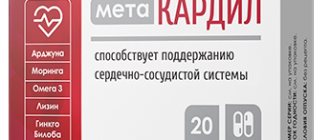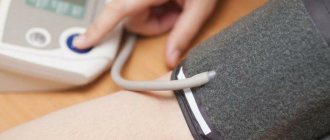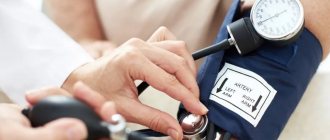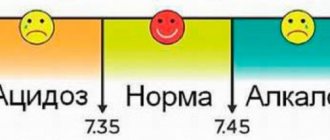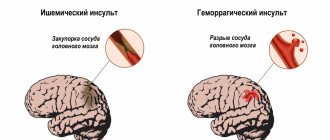32nd city clinical clinic
Changes in blood pressure (BP) in women during pregnancy are observed quite often, which can adversely affect the mother and fetus. Blood pressure is one of the most important indicators of the functioning of the circulatory system in the body. During pregnancy, all organs and systems of the mother work under increased stress, especially the cardiovascular system. Therefore, it is necessary to regularly measure blood pressure to prevent the development of severe complications. At the beginning of pregnancy, blood pressure usually decreases slightly, due to the action of hormones. In later stages of pregnancy, as the fetus grows and the blood flow necessary for its nutrition increases, blood pressure may increase relative to physiological indicators before pregnancy. Arterial hypertension is said to exist if a pregnant woman’s blood pressure exceeds 140/90 mmHg. However, in women with low blood pressure before pregnancy, arterial hypertension may be present at blood pressure levels that are usually considered normal. Therefore, it is important to know your normal blood pressure.
Why is high blood pressure dangerous during pregnancy?
High blood pressure during pregnancy poses a great danger to the mother and fetus. Against this background, vasoconstriction occurs and the blood supply to all vital organs, including the placenta, is disrupted. Due to the lack of essential nutrients and oxygen, the growth and development of the fetus slows down. There is a serious danger of placental abruption, which is accompanied by bleeding and threatens the life of the mother and fetus. High blood pressure during pregnancy can cause the development of a dangerous pregnancy complication - preeclampsia. Manifestations of preeclampsia can also include swelling, large weight gain, and the presence of protein in the urine. Very dangerous symptoms of preeclampsia are: headache, blurred vision (“floaters”, “veils” before the eyes), pain in the upper abdomen. Deterioration of the general condition may be accompanied by dizziness, tinnitus, nausea, and vomiting. Preeclampsia can provoke a serious complication - eclampsia. In this condition, the pregnant woman loses consciousness and experiences convulsions.
Register for pregnancy at the antenatal clinic as early as possible!
A very important feature of arterial hypertension during pregnancy is that often even with high blood pressure numbers the patient feels normal. High blood pressure is detected by chance, during the next visit to the antenatal clinic. The absence of clinical manifestations of high blood pressure does not exclude the development of dangerous complications.
In order to promptly identify unwanted abnormalities during pregnancy and prevent the development of complications in the mother and fetus, pregnant women need to regularly monitor their blood pressure. It is very important to register for pregnancy at the antenatal clinic in a timely manner. The doctor will promptly detect changes in blood pressure and prescribe optimal therapy to maintain normal blood pressure. If a woman had high blood pressure before pregnancy and she is taking medications, it is necessary to adjust the treatment and individually select medications that can be taken during pregnancy. To prevent high blood pressure, a pregnant woman should eat a healthy and balanced diet, follow a drinking regime, and monitor weight gain. The antenatal clinic doctor will also give the correct recommendations on these issues. A pregnant woman must follow the recommendations and not violate the prescribed therapy.
What to do if a pregnant woman has high blood pressure?
If a pregnant woman regularly monitors her blood pressure on her own and notices even a slight increase in it while feeling well, she should visit a doctor at the antenatal clinic as soon as possible (before the scheduled next appointment). Self-administration of medications in this case is strictly prohibited. Before visiting a doctor, you can lower your blood pressure by taking a mild sedative based on motherwort or valerian.
When is it necessary to call an ambulance?
If blood pressure rises suddenly, or you feel unwell, urgent hospitalization is necessary, and it is advisable for the patient to immediately call an emergency medical team. Signs that should alert you are: headache, sensation of flashing dots or “floaters”, blurred vision, pain in the upper abdomen, nausea, vomiting, agitation or depression, along with increased blood pressure. There may be a high level of convulsive readiness, which is manifested by twitching of the muscles of the face, neck, upper limbs, loss of consciousness and convulsions are possible.
What to do before the ambulance arrives?
First of all, go to bed, if possible eliminate all unwanted irritants (turn off all sources of noise, close the curtains), do not leave the pregnant woman alone, as convulsions may occur and help will be needed. Give it a position with the head end raised. You can take blood pressure lowering medications prescribed by your doctor. If a woman has not previously taken antihypertensive drugs, then she should not take drugs on the advice of others.
If an attack of convulsions occurs, the pregnant woman should be laid on a flat surface, her head should be turned to the side (to prevent aspiration of vomit), protected from injury (covered with a blanket), and not physically restrained. After an attack, clean the mouth with a napkin from vomit, blood and mucus. Wait for the ambulance to arrive!
The ambulance will arrive quickly and provide the necessary assistance. Hospitalization for this condition is mandatory. Only in a hospital is it possible to fully monitor the condition of the mother and child, complete therapy and determine a delivery plan.
We wish you health and happy motherhood!
Physician-therapist at the antenatal clinic of the 32nd city clinical clinic Tatyana Petrovna Shchuko
Special diet for pregnant women with high blood pressure
According to statistics, blood pressure increases in 8-10% of pregnant women and is one of the main causes of complications in the mother and fetus. A significant factor in normalizing blood pressure is proper nutrition.
Why is blood pressure dangerous?
High blood pressure disrupts placental blood circulation, which, naturally, cannot pass without leaving a trace for the fetus. His body begins to experience a lack of oxygen and nutrients, hypoxia (lack of oxygen) and malnutrition (fetal growth retardation) develops. The mother has an increased risk of eclampsia - a dysfunction of all major organs and systems, accompanied by a convulsive syndrome that threatens the lives of mother and baby.
If a woman who has never previously suffered from hypertension experiences an increase in blood pressure for the first time during pregnancy, they speak of gestational arterial hypertension. In this case, either the systolic (upper) blood pressure increases by more than 30 mmHg, or the diastolic (lower) blood pressure increases by more than 15 mmHg, or the total blood pressure figures exceed the value of 140 to 90 mmHg.
Gestational arterial hypertension often occurs against the background of existing chronic cardiovascular diseases, inflammatory kidney diseases, obesity, etc. Thus, pregnancy can provoke complications of these chronic diseases associated with increased blood pressure, and thereby cause its increase for the first time (if before pregnancy, with the help of internal compensatory mechanisms, the body managed to normalize blood pressure) or contribute to an increase in the manifestations of pre-existing hypertension.
If a woman has been suffering from hypertension for a long time, then such a situation may arise during pregnancy. The expectant mother’s body has adapted to the high blood pressure, and the woman herself is not particularly bothered by it, she feels as usual. But this cannot be said about a developing child; he is not adapted to the mother’s high blood pressure. Placental blood flow, as mentioned above, is disrupted regardless of whether the mother feels pressure or not, and all “hypertensive problems” for mother and child remain, so to speak, “in force.”
High blood pressure is part of the triad of late gestosis (a pregnancy complication in which the functioning of all organs and systems of the body is disrupted) and, as a rule, does not remain alone for long. Very quickly it is accompanied by increasing edema and proteinuria (protein in the urine). Taken together, these manifestations of gestosis significantly increase the risk of developing complications during pregnancy and childbirth. If blood pressure increases (if the numbers exceed 150 per 100 mmHg) or if the other two symptoms of gestosis (edema and proteinuria) occur, hospitalization in a maternity hospital, preferably a specialized one, is necessary. If blood pressure numbers are above 170 to 110 mmHg, then this condition is regarded as a significant risk of developing stroke (acute cerebrovascular accident) or eclampsia.
For arterial hypertension it is important:
- Reduce the consumption of table salt, as the consumption of salt leads to fluid retention in the body.
- Normalize weight.
- Ensure sufficient intake of calcium and magnesium into the body: their balance is involved in the regulation of blood pressure at the cellular level. To do this, you need to eat fresh vegetables and fruits and garden herbs every day. Magnesium is found in sunflower seeds, all legumes, green vegetables, carrots, and seaweed. The human body gets calcium from the following foods: dairy products, green leafy vegetables (broccoli, cabbage, cauliflower, asparagus), egg yolks, all kinds of legumes, figs. The richest in potassium are dried apricots and apricots, melon, citrus fruits, beans, potatoes, broccoli, and milk.
Prohibited Products
If you are prone to high blood pressure, it is better to avoid the following foods:
- fresh bread, butter and puff pastry products, cream, cream cakes;
- fatty meats and fish, lard, goose meat, duck meat, internal organs of animals (liver, kidneys), brains, smoked meats, sausages, canned food, herring, salted and smoked fish, caviar;
- concentrated meat, fish, mushroom broths and sauces;
- any fried 6luda;
- hard-boiled and fried eggs;
- fermented milk products with high fat content, sweet yoghurts, whey;
- mushrooms;
- legumes;
- salted, pickled and pickled vegetables, pickled apples, tomatoes in any form, bananas, pineapple and its juice;
- spicy and salty snacks;
- snack food canned meat, fish and vegetables, especially in tomato sauce;
- strong tea, coffee, cocoa, chocolate;
- seasonings and spices: red and black pepper, mustard, horseradish, vinegar, monosodium glutamate, cloves, mayonnaise, ketchup.
Any alcoholic beverages or refined sugar are strictly prohibited.
Principles of nutrition
In the first half of pregnancy, if there is no increase in blood pressure, then there is no particular need for any strict dietary restrictions.
When blood pressure increases, the diet is aimed at eliminating the accumulation of fluid in the body, normalizing body weight gain, and normalizing mineral metabolism.
The diet should be physiologically complete and contain the main types of products: 100-120 g of proteins per day, of which 70-90 g are of animal origin (milk, cottage cheese, cheese, eggs, meat, fish); 80-100 g of fats, of which at least 20 g are vegetable. The amount of carbohydrates in a pregnant woman's diet should not exceed 350-400 g per day, free liquid - about one and a half liters, and table salt - up to 6 g per day (this means that dishes need to be slightly under-salted). Meat and fish are not fried, but boiled, stewed or steamed.
It is important to follow a four-meal diet, and it is advisable that meals take place at the same hours. Breakfast should be 30% of the daily caloric intake, lunch - 40%, afternoon snack - 10%, and dinner - 20%, thus, by the evening the food load decreases. The last meal should take place 2-3 hours before bedtime and consist of light foods: kefir, yogurt, cottage cheese with sour cream, you can add a little honey to dishes or tea if there are no allergies. Meat and fish dishes should be eaten in the first half of the day, and dairy dishes - in the late afternoon.
If the pressure is already rising or has risen before - before pregnancy or during a previous pregnancy, it is necessary to limit fluid intake (up to 3-4 glasses per day, including soups and drinks) and table salt, it should not be more than 3-5 g per day, which is one level teaspoon. You need to cook without salt, and add it later - at the table, before eating. It is advisable to eat 5-6 times a day in small portions. The amount of proteins (meat and dairy products) needs to be increased, and carbohydrates, especially sugars, should be reduced. You should give up meat, fish and, especially, mushroom broths, replacing them with vegetable and milk soups.
Recommended products and dishes
Bread and flour products. We recommend wheat bread made from 1st and 2nd grade flour, yesterday's baking or slightly dried, dietary salt-free bread, savory cookies and biscuits.
Soups.
The recommended serving of soup is 250-400 g. You can eat milk and mucous soups made from well-cooked cereals (rolled oats, semolina, rice, buckwheat, small vermicelli), as well as vegetable broth soups made from fresh vegetables with the addition of vermicelli, beetroot soup. Flour for soups is only dried without fat. Soups are seasoned with cream, low-fat sour cream, and chopped herbs can be added.
Meat and meat products.
Steam cutlets, quenelles, rolls, meatballs, zrazy and steam puddings are prepared from lean varieties of beef and veal, rabbit and poultry meat (chicken, turkey without skin). Beef stroganoff made from boiled meat, lean boiled pork in pieces or also in the form of steamed cutlets, meatballs, and puddings are also allowed. After boiling, the meat can be baked or fried, or made aspic dishes.
Fish.
Low-fat types of fish are allowed (cod, hake, ice fish, pike perch, navaga, etc.) boiled or in the form of a steam soufflé (the fish must first be freed from the skin). You can make steamed cutlets, dumplings, meatballs, fish puree, rolls, and jellied fish from fish.
Milk and dairy products.
Whole milk is recommended (if there are no problems with its tolerance). Milk can be added to tea, porridge, to prepare milk soups, jelly, jelly. Non-acidic cottage cheese, mashed with milk and sugar, is allowed, curd dishes: steamed or baked cheesecakes, steamed curd puddings, soufflé, casseroles without crust (curd-carrot, curd- cereals, etc.). You can use one-day kefir or yogurt, non-acidic sour cream, non-acidic and low-fat yoghurts,
Eggs.
You can eat 1-2 eggs a week soft-boiled, “in a bag”, in the form of steam omelettes or dishes made from whipped whites (snowballs, meringues).
Cheeses.
Low-fat, soft, unsalted, mild varieties are recommended - such as Yaroslavl, Russian, etc.
Fats.
Unsalted butter, including ghee, and refined vegetable oils are allowed only as an addition to dishes.
Cereals and pasta.
You can eat vermicelli and finely chopped boiled pasta. Any cereals are allowed.
Vegetables.
Potatoes, carrots, cauliflower, beets, zucchini, pumpkin and cucumbers are eaten boiled, baked or raw. You can eat kohlrabi and ground pear, grated, and finely chopped leafy lettuce. White cabbage, green peas, and green beans are acceptable in limited quantities. Green onions, dill, parsley are added to dishes. Vegetables can be prepared in the form of purees, steam soufflés, puddings, cutlets, etc.
Snacks.
Salads made from boiled vegetables, meat, fish can be used as appetizers. Only boiled sausages such as doctor's, dairy or diet sausages can be consumed. Unsalted ham without fat is acceptable.
Sauces.
Milk-fruit sauces are allowed, as well as bechamel (white sauce made from flour, milk, eggs) without breading flour with the addition of a small amount of butter or sour cream.
Spices. Finely chopped parsley or dill, bay leaf, cinnamon, and cloves are allowed in small quantities.
Fruits.
Some berries, jams and juices made from them can slightly reduce high blood pressure. These are gooseberries, grapes, plums, prunes, grapefruit, raspberries, sea buckthorn, cranberries, strawberries, lingonberries, viburnum, serviceberry, peaches, apricots, hawthorn, chokeberry and apples. If tolerated, sweet grapes (without skin and seeds) are recommended. You can eat puree from plums, ripe and sweet berries, as well as baked, fresh pureed, fresh whole (without skin), soft and sweet varieties of apples and pears.
Sweets.
In case of excessively rapid weight gain, sweets will have to be limited.
Beverages.
We recommend weak tea with milk, mousses, juices from fruits, berries and vegetables diluted with boiled water, rosehip decoction, wheat bran decoction with honey.
How to lower blood pressure without medications
Several simple methods from a famous Russian cardiologist AFTER 50 YEARS, EVERY SECOND PERSON IN RUSSIA SUFFERS FROM HIGH PRESSURE. MOST KNOW ABOUT THE DISEASE, BUT ALMOST HALF OF THE CITIZENS TREAT THEMSELVES
And they risk getting complications in the form of strokes, heart attacks, etc. Meanwhile, doctors know effective ways to combat high blood pressure.
And sometimes they are not complicated at all. German cardiologist from the Technical University of Munich Martin Holle named simple ways to lower blood pressure without drugs. To do this, you need to eat less bread, cheese and sausage, salty foods, but more vegetables and walk for at least 15 minutes every day. But running or cycling is not at all useful. The famous Russian cardiologist, academician of the Russian Academy of Sciences, head of the department of hospital therapy at Sechenov University Yuri BELENKOV
is convinced that in Russia another method is more effective.
When and how should you reduce blood pressure? VISITING A CARDIOLOGIST
- Yuri Nikitich, many are sure that 140 is almost normal pressure. — According to international recommendations, ideally a person should have a blood pressure of 120 over 80 at any age. There is a concept of high normal pressure - no more than 130 over 80-85. Anything higher, that is, 140 over 90 or more, is hypertension. The exception is for people 75 years of age and older who have severe narrowing of the carotid arteries that supply the brain. For them, the upper pressure limit is set at 140/90 or 145/95 mm Hg. Art., because lower pressure can lead to deterioration of brain nutrition. - When should you reduce your blood pressure? — As long as a person has high normal blood pressure or borderline values, then any non-drug methods can be used - both diet and physical activity. I think that number one among these measures specifically for our country is a complete cessation or sharp reduction in alcohol consumption and smoking. This is more effective than proper nutrition and exercise combined. If the pressure is stable at 150 or higher, a healthy lifestyle alone will not solve the problem. We need to take medicine. And not when the pressure rises, but for prevention - so that it does not rise.
As a rule, all the medications we prescribe begin to act within 2-3 hours, maximum 12 hours, and remain effective for 24-27 hours. So don’t think that if you take a pill, you will immediately feel better. The medicine will begin to act only after a few hours. Yes, there are drugs like captopril that can be placed under the tongue - and the pressure will drop in 10-15 minutes. But they are used in emergency cases with very high blood pressure. For routine treatment, it is better to use medications that reduce blood pressure slowly and gradually. It is also important to remember: when the pressure has dropped to normal levels, you cannot stop taking the pills or reduce the dose. — Are there people with low blood pressure who need not be treated? - If a woman is hypotensive, that is, she has always had low blood pressure, say, 100-110 mm Hg. Art., then for her 130 is already high blood pressure. And she may need medication. Everything is individual. If a person feels unwell with a blood pressure of 140, drug therapy should be started. If there were relatives in the family with hypertension - mother, grandmother, etc., then the man is 35-40 years old, and the woman should visit a cardiologist before giving birth. Very often, women from such “hypertensive” families develop high blood pressure during pregnancy or after childbirth.
MORE MOVEMENT, LESS SALT
— What are the proven and most effective non-drug methods that help with hypertension?
— "Beginners" hypertensive patients can benefit from physical exercise. When a person physically exerts himself - within reasonable limits and in accordance with age - as a rule, the pressure after exercise decreases. But this does not mean that you can eat four cutlets or a hamburger, and then go for a run and everything will be fine. Physical activity and proper nutrition work together. Choose what brings you pleasure. I always tell the wives of my patients: if your husband likes to walk, there is no need to force him to play tennis, if he likes to swim in the pool, do not force him to ride a bicycle. The load level should be such as not to exceed the maximum heart rate recommended by the cardiologist, for example 120-130 beats per minute. To do this, measure your pulse regularly. — Should I limit salt? “We are introducing salt restrictions—a salt-free diet—only for severe hypertensive patients who have kidney damage. Simply removing salt will not cure hypertension. The body needs sodium. However, you should not exceed the daily requirement for salt - this is approximately 5 g, or half a teaspoon. Usually we get this norm by consuming products that we buy in the store. Therefore, we can recommend simply not adding salt to ready-made dishes. NAVAGA VERSUS LOBSTER -
Is the Mediterranean diet also effective for preventing high blood pressure?
- Yes, but there is nothing sophisticated about it. It is called Mediterranean because it was first described in the Mediterranean region. But this does not mean that you need to eat lobsters and avocados and pineapples. We use ordinary vegetables - garlic, onions (note, I started with them), tomatoes, cucumbers. In addition, olives, olive oil, but you can also use regular sunflower or flaxseed, rapeseed oil. From seafood - regular fish. The further north it is, the better. The healthiest thing is the one that the cat loves - that is, not salmon, but some kind of low-fat fish. Optimally - cod (cheap navaga and blue whiting, by the way, are also from the cod family). You can eat spaghetti made from durum wheat. Plus wholemeal bread. And no buns or cakes, of course. That's what the Mediterranean diet is all about. In general, if your weight, blood pressure, cholesterol, and sugar levels are normal, then you don’t need to torment yourself with diets. You can eat everything - within reasonable limits. Source: Arguments and Facts


